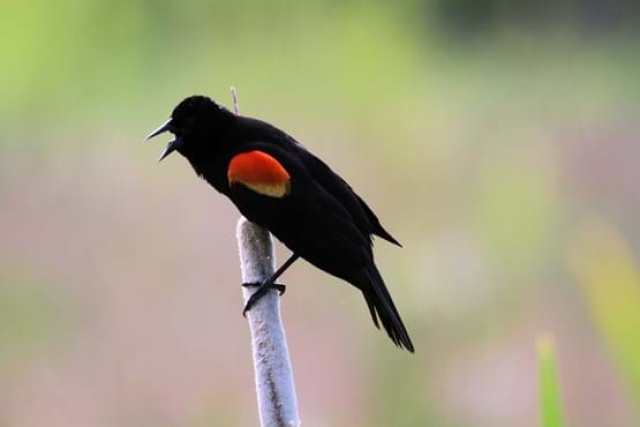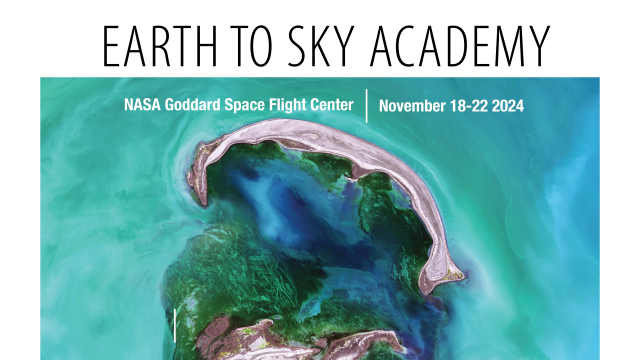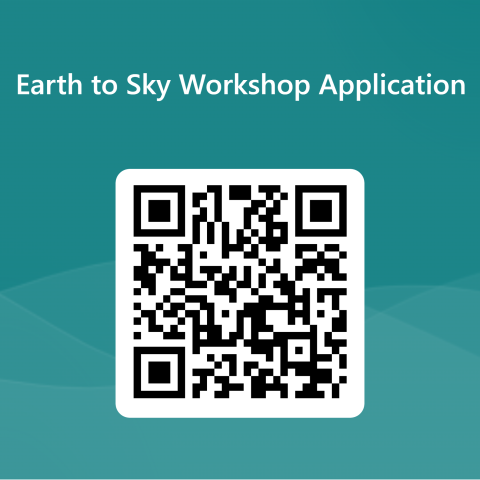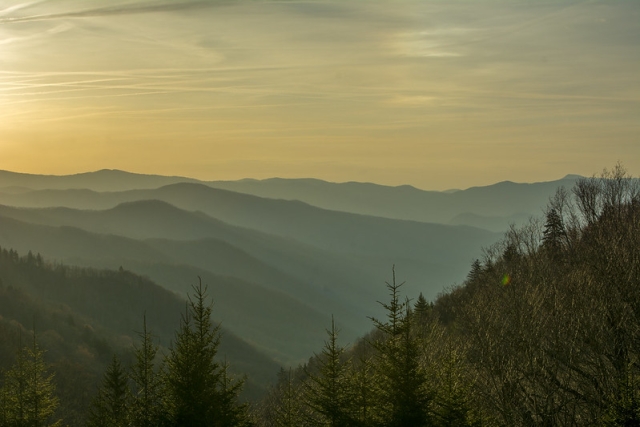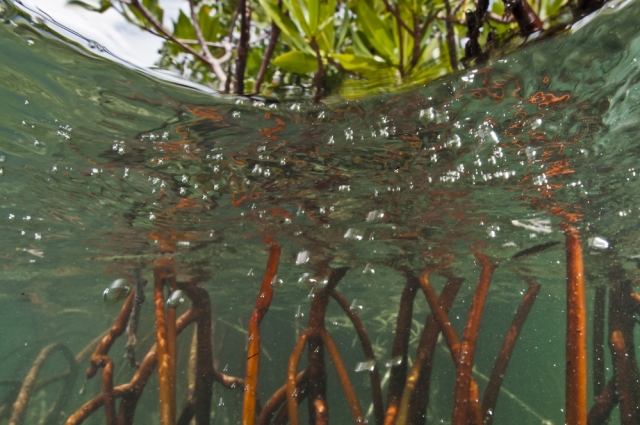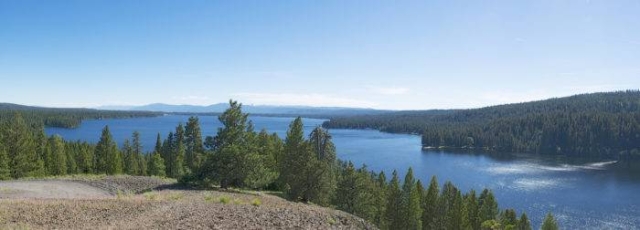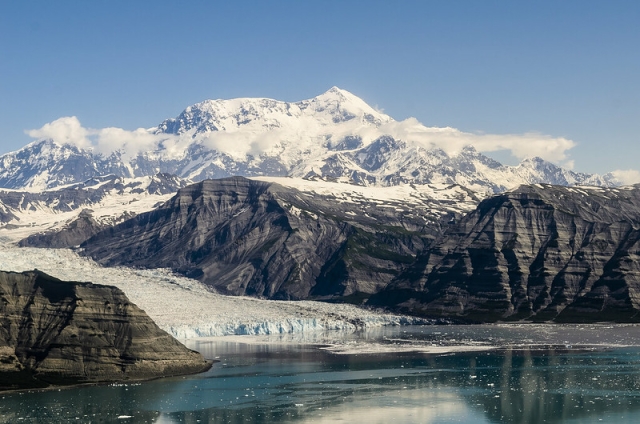- Details
Equipping Idaho’s educators to explore climate science through wildlife.
November 12 – 15, 2024 at the Teton Science School Kelly Campus, Kelly WY
Join Earth to Sky's Team Idaho for 4 days of training with formal and informal educators from across Idaho. This workshop will expose participants to innovative pedagogy and techniques for framing climate change.
Joined by wildlife professionals, scientists, and others, we will explore:
- Effective communication techniques for climate change
- Climate change's Impact on Idaho's Wildlife
- Tested techniques for delivering place-based education and outdoor learning experiences
- The importance of fostering wonder and empathy for the natural world
Included:
- Lodging and food
- Travel stipends
- 2 professional development credits through Northwest Nazarene University or Boise State University
Apply for this course here.
Agenda
Flyer
If you have any questions about this workshop, please contact us at This email address is being protected from spambots. You need JavaScript enabled to view it..
- Details
We know the challenges that in-person professional development poses. Time away from your post, expense and budgetary considerations, and of course the impact of air travel on our environment. To help mitigate these issues we are excited to announce the next chapter in our Earth to Sky story: virtual courses! This is a professional development opportunity for place-based interpreters and informal educators.
Join us this July and August for the 2024 Earth to Sky Virtual Course: The Pilot.
What is an Earth to Sky Course?
Our workshops provide you with a fantastic opportunity to connect with NASA climate science, scientists, and data and then synthesize this information with cutting edge climate change communication strategies.
Participants will be challenged to work on their own for two hours each week, and engage in some preassigned and also self-determined tasks. As with every Earth to Sky Course we will include the development of what we call the “Authentic Task” where participants develop an action plan for a product that they will implement at their home site.
We ask that you bring your own experience, expertise, and climate story with you. What have you done in the past that worked, that didn’t and what opportunities have you taken and missed? An Earth to Sky course nurtures the robust sharing of ideas, experiences, and aspirations for climate change communication. We invite all of our participants to participate fully in the course and our community of practice.
Details:
- This course will meet on Tuesday and Thursday each week for two hours each day.
- This course will be completed over four weeks.
- In addition to the two hour online meetings on Tuesday and Thursday each week, this course will require two additional hours of asynchronous work that we suggest participants complete on the Wednesday between weekly meetings.
- Each session starts at 1:00pm EST.
- Registration is free.
Schedule:  Photo Credit: National Park Service
Photo Credit: National Park Service
- Week one: July 23rd - 25th.
- Week two: July 30th - August 1st.
- Week three: August 6th - 8th.
- Week four: August 13th - 15th.
If you have always wanted to join an Earth to Sky course but have been hampered by the in-person nature of those past events then this might be for you!
Mark your calendars now and join our community to be notified when registration opens! We hope to see you online soon!
As this is our first virtual offering since the pandemic, space is limited as we try this new format out.
- Details
Applications Now Closed
The Earth to Sky Academy is a tuition-free course for interpreters, informal educators, and science communicators interested in creating and nurturing regional communities of practice focused on improving climate science communication.
- When: November 18–22, 2024
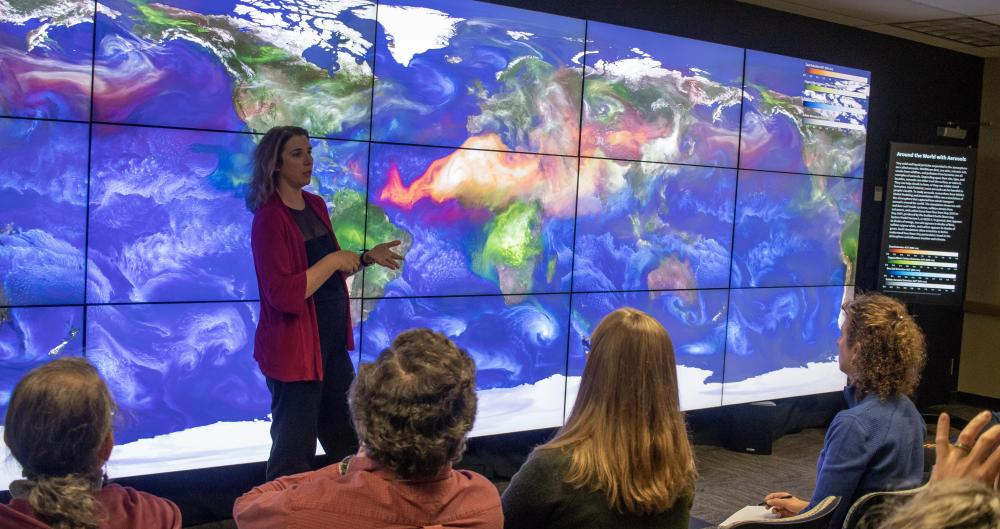
- Where: NASA Goddard Space Flight Center (Greenbelt, MD)
- Team Applications closed May 24, 2024
- Next Academy in 2025
The Earth to Sky Academy is intended for teams of experienced informal educators and climate communication leaders who have a strong commitment to furthering climate literacy within their respective regions.
The purpose of the Academy is to train Regional Leaders who will conduct regional Earth to Sky (ETS) courses and nurture their own Earth to Sky Regional Community of Practice. Academy content is based on over 20 years of experience and extensive evaluation of the ETS model. Participants will be supported every step of the way, before, during, and after the course.
For the first time, existing teams may re-apply to attend the Academy. This may be desirable if the team has significant turnover or new goals which could be catalyzed by returning to the Academy.
- Details
Applications Now Open!
Growing Change Workshop
Earth to Sky Academy
Niobrara Watershed
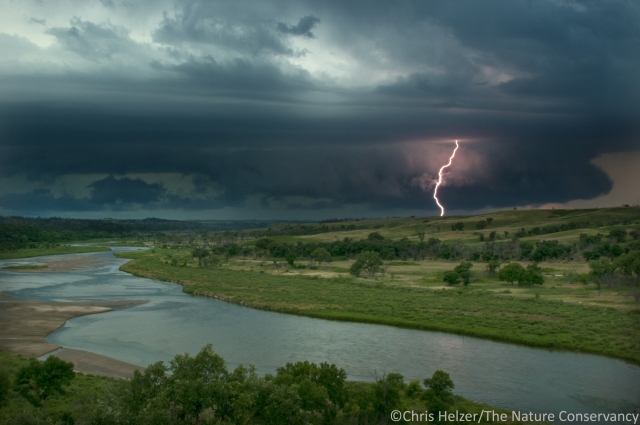
Join formal and informal educators from across the Niobrara Watershed who recognize the importance of teaching climate change for a three-day workshop in June 2024.
This workshop will be packed with exciting topics, fun activities, and lesson plans for you to bring back to your school or community, including;
- Field Trip along Niobrara National Scenic River
- Share-A-Thon of Youth Activities
- Guest Speakers from NASA and National Weather Service
When and Where
- June 11-13, 2024
- The Nature Conservancy
- Niobrara Valley Preserve 42269 Morel Road Johnstown, NE 69214
- Optional Pre-Trip: The Niobrara Valley Preserve bison pasture, Monday, June 10 from 2:30 pm to 4:30 pm.
- Optional Post-Trip: The Valentine National Wildlife Refuge on Friday, June 14 at 9 a.m.
For more information contact the team at This email address is being protected from spambots. You need JavaScript enabled to view it.
- Details
Climate Change Science & Communication: Ama (Water) Is Life
Earth to Sky is coming to Cherokee, North Carolina on November 30th-December 2nd, 2023!
Join us for this free, in-person, workshop-style course to learn about what’s going on with climate change in western North Carolina/eastern Tennessee and how to engage with audiences on climate issues.
This course is hosted by Earth to Sky Team Southern Appalachian Highlands.
About the Course
This course provides a foundation in climate science with an emphasis on the connection between global to local processes and on climate impacts in your region. Participants will discuss and practice proven methods for successful climate communication and connect with the growing Earth to Sky community of practice – over 700 communicators and scientists from a variety of organizations improving and sharing their expertise on this topic. You will leave the course armed with knowledge about cutting-edge climate science and a plan for bringing the climate story to your visitors in engaging and inspiring ways.
- Meet with world-class scientists and communicators to discuss best practices and the latest insights about understanding and responding to a changing climate
- Hear about the latest global and regional climate research from the scientists themselves.
- Join interactive sessions with specialists about regional impacts on water.
- Experience community science and climate communications first-hand on a field trip to the Great Smoky Mountains National Park where educators will engage directly with workshop participants to evaluate teaching resources using local data.
- Meet colleagues from around the region and join a community of interpreters and educators working on communicating regional climate issues.
- Learn how to stay connected with these scientists and communicators. You’re not alone in your efforts - there’s lots of help available!
Target Audience
Public school teachers. Participants should have an interest in climate data and communication. Knowledge of climate science is not required. Teachers interested in collaboration planning to work together on joint projects with students are especially encouraged.
- Details
Earth to Sky is coming to Zoo Miami on April 23-26th, 2024!
Applications Are Now Closed.
There’s never been a better time to engage your visitors, staff, and communities about the impacts and implications of climate change in south Florida. Join colleagues in a supportive community of practice to learn about the science of climate change and share best practices in climate communication.
“Florida Squeezed” will provide you with a foundation in climate science with an emphasis on the connection between global to local processes and on climate impacts in south Florida. Participants will discuss and practice proven methods for successful climate communication and connect with the growing Earth to Sky community of practice – over 1500 communicators and scientists from a variety of organizations improving and sharing their expertise on this topic. You will leave the course armed with knowledge about cutting-edge climate science and a plan for bringing the climate story to your visitors in engaging and inspiring ways.
Course Logistics
-
This course is hosted by Earth to Sky in partnership with NASA, the National Park Service, the U.S. Fish and Wildlife Service, and Zoo Miami.
-
9:00 am - 3:30 pm daily commuter-friendly schedule. No tuition fee.
-
Travel and lodging expenses are the responsibility of participants and/or their institutions.
-
A block of nearby hotel rooms will be reserved for course participants.
-
Food is available for purchase onsite, participants are encouraged to bring their own lunches.
Target Audience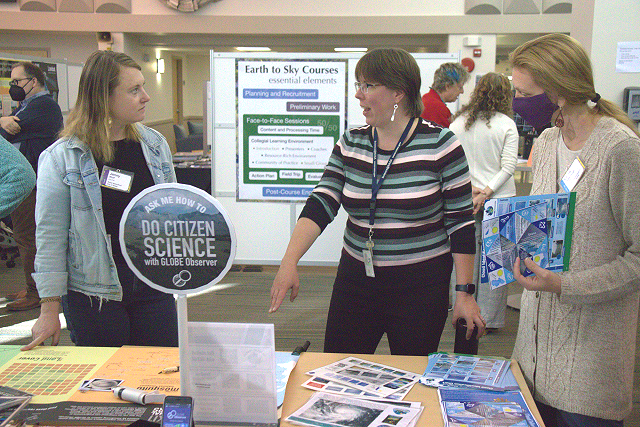
Interpretive managers, frontline interpretive staff, tour operators, informal educators, and science commnicators at federal, state, or municipal agencies, non-profit, and private organizations. Knowledge of climate science is not required. Participants from Florida and the Caribbean are especially encouraged to apply.
Course Objectives
Upon completion of the course, participants will be able to:
-
Design and execute an action plan to produce a climate change education, outreach, and/or interpretative product/program.
-
Engage with the Earth to Sky community, both regionally and nationally, to exchange ideas and expertise.
-
Describe how connections between global, regional, and local Earth processes and climate change are affecting the ecosystems, economies and communities in the region.
-
Identify and apply audience-appropriate communication techniques, such as metaphor, analogy, visual imagery, storytelling, dialogic questions, or co-creation of knowledge in their product/program.
-
Access relevant, audience-appropriate NASA science content and/or educational/visual elements to use in their product/program.
The Florida Squeezed course will emphasize experiential learning. It will start with a few distance-learning components that participants are required to complete prior to attending the four days of face-to-face sessions at Zoo Miami. Participants are expected to be present and fully participate in all of the face-to-face sessions. Approximately four months later, a one-hour webinar will be held for participants to share progress and challenges, and receive feedback/assistance in executing their action plans. The collegial atmosphere of this course will provide participants with many opportunities to engage with scientists, communication practitioners, and colleagues in collaborative learning.
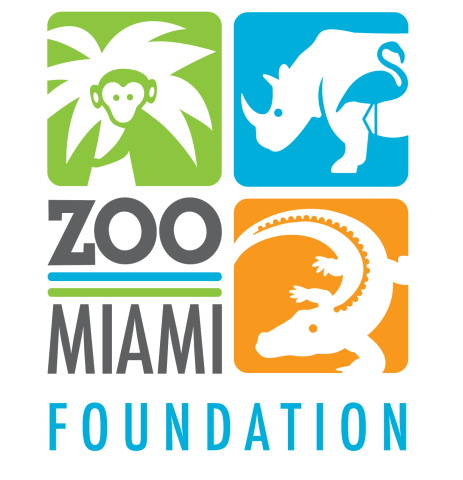 Face-to-Face Sessions at Zoo Miami
Face-to-Face Sessions at Zoo Miami
-
Scientists from NASA and other national agencies will present climate science in both global and regional contexts followed by discussion sessions to apply
that content in participants’ work settings. -
A field trip to Everglades National Park will serve as a case study illustrating climate science/research and a model for climate communication.
-
Dedicated time to work with colleagues and experienced mentors as part of a regional community of practice. Work collaboratively to create an action plan for developing a product or program applying course content for use in their site or organization. Participants are encouraged to reach out to internal and external collaborators as they execute these action plans.
Expectations of Participants
-
Complete preliminary assignments in preparation for the face-to-face sessions.
-
Be present and fully participate in all four days of face-to-face sessions.
-
Create an Action Plan for developing an interpretive, educational or outreach product or program applying course content.
-
Participate in post-course reporting and evaluations, including a one-hour follow-up webinar with fellow course participants.
Application Process
Applications are closed. In order to attend this course, participants should have prior experience in communications (i.e., interpretation, environmental education, outreach, and/or public affairs). Individuals must complete the Application Form illustrating their interest and experience in climate change communications. Experience or knowledge of climate science is not a prerequisite. Applicants must obtain approval from their supervisor before applying.
The course planning team will carefully review and make selections based on information provided in your Application Form. The maximum class size is 30. Those not selected during the first round will be placed on a waitlist to backfill any cancellations.
About Earth to Sky
Earth to Sky (ETS) is an ongoing and expanding partnership between NASA, the National Park Service, and the U.S. Fish and Wildlife Service. Since 2004, the partnership has conducted many professional development events on the topic of climate change. https://www.earthtosky.org.
Questions?
Contact our Earth to Sky course coordinator John Ceballos: This email address is being protected from spambots. You need JavaScript enabled to view it..
- Details
Ignite:
Sparking Local Climate Change Conversations
in Central Idaho
November 7-9, 2023
McCall, Idaho
Earth to Sky Idaho is hosting our second climate communication workshop in McCall, Idaho. During three days in Ponderosa State Park, formal and informal educators will be exposed to innovative pedagogy and techniques for framing climate change. Educators will focus on the science of wildfire in the context of global environmental change. Joined by fire ecologists, land managers, and local professors, we will explore:
- The connections between global climate changes and Idahoans
- The ecological and cultural shifts contributing to changing fire regimes in Idaho
- Ways to overcome barriers to effective climate change communication
- Demographics on Idahoans’ climate change opinions
- Effective use of storytelling to connect diverse audiences to science concepts
With a recognition that learning is most productive when applied, participants will have time every day to start putting new ideas into practice. With feedback from NASA coaches and peers in the workshop, participants will create a climate outreach product to bring back to their educational institution.
The ETS Idaho team coordinators have diverse experience in environmental education, with years of experience as naturalists, national park interpreters, outdoor school instructors, backcountry guides, and science communicators. We will spend a day in Ponderosa State Park modeling how outdoor field experiences can effectively connect your participants to climate science.
Lodging and food are provided. Stipends for eligible informal educators are available, and 2 Professional Development credits are available for formal educators.
Interested in learning more? Contact "bw @ cityofboise.org" with the subject “Ignite Workshop."
Want to know what our past participants thought?
“I loved participating in the hands-on activities. Presentations can be hard to sit through, no matter how interesting they are. When I'm working with students, I know that they sit through lots of presentations, and I find the real value is in engaging them. So, I loved learning new ways to do that and plan on incorporating many of the activities from this workshop into our curriculum!”
“(I most valued)…the lessons and thinking about incorporating new ways of learning using emotional learning and storytelling. I found the activities we did to be so wonderful and plan on using all of them. I feel like I have new ways to help my students access topics that can be difficult...”
“This workshop seamlessly incorporated emotions with science. I've never thought to do that, and I can now see the value, and the possibilities.”
“I leave feeling refreshed on how to communicate, teach, share climate knowledge in an accessible way”
Image: The view from Osprey Point at Ponderosa State Park. Photo Credit: Idaho Parks and Recreation.
- Details
“Not everything that is faced can be changed; but nothing can be changed until it is faced.”
-James Baldwin
Facing Change: Communicating Climate Connections In Coastal Alaska |
|
Tuseday October 31st - Thursday November 2nd, 2023 |
| Juneau, Alaska |
Earth to Sky Coastal Alaska Course and Community of Practice: A Regional Approach
There’s never been a better time to engage your visitors, staff, and communities about the impacts and implications of climate change in Coastal Alaska. Join with colleagues in a supportive community of practice to learn about the science of climate change and share best practices in climate communication.
The Facing Change: Communicating Climate Connections in Coastal Alaska course provides you with a foundation in climate science with an emphasis on the connection between global to local processes and on climate impacts in the coastal areas of Alaska. Participants will discuss and practice proven methods for successful climate communication and connect with the growing Earth to Sky community of practice – over 700 communicators and scientists from a variety of organizations improving and sharing their expertise on this topic. You will leave the course armed with knowledge about cutting-edge climate science and a plan for bringing the climate story to your visitors in engaging and inspiring ways.
There are some fabulous presenters lined up, including Dr. Eran Hood, University of Alaska Southeast Professor of Environmental Science; Dr. Michael Loso, Geologist at Wrangell-St. Elias National Park & Preserve; Dr. Kristin Timm, Research Associate at the Alaska Climate Adaptation Science Center at the University of Alaska Fairbanks, National Park Service Interpreters, and more!
- Offered through the Earth to Sky (ETS) NASA-NPS interagency partnership
- No tuition fee
- Travel expenses are the responsibility of participants and/or their institutions.
Course Goal
Our course goal is to inspire courage, hope and action in communicators and visitors to Coastal Alaska by engaging in compelling, clear and concise conversations about the wonders of the environment and the impacts of the climate crisis, in order to increase the resiliency of our communities.
Course Structure
This course emphasizes experiential learning. It starts with a few distance-learning components that participants are required to complete prior to attending the three days of face-to-face sessions in Juneau, Alaska. Participants are expected to be present and fully participate in all the face-to-face sessions. Approximately four months later, a one-hour webinar will be held for participants to share progress and challenges and receive feedback/assistance in executing their action plans. The collegial atmosphere of this course provides participants with many opportunities to engage with scientists, communication practitioners, and colleagues in collaborative learning.
Face-to-Face Sessions in Juneau
- NASA scientists and other national agencies will present climate science in both global and regional contexts followed by discussion sessions to apply that content in participants’ work setting.
- A field trip to the Mendenhall Glacier Visitor Center will explore how to engage visitors in climate science messaging in a wide variety of ways.
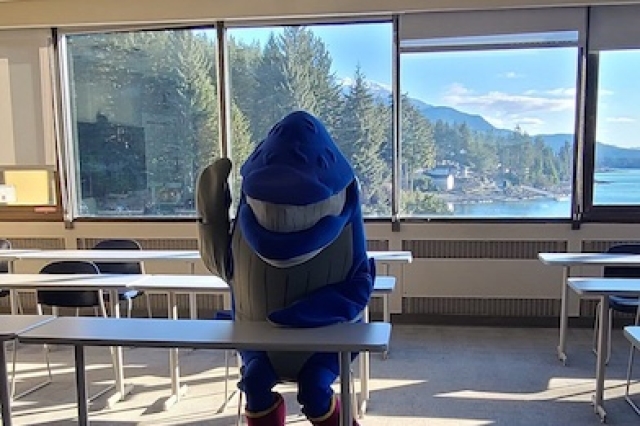 Dedicated time to work with colleagues, coaches, and experienced mentors as part of a regional community of practice to create an action plan for developing a product or program applying course content for use in their site or organization. Participants are encouraged to reach out to internal and external communities as they execute these action plans.
Dedicated time to work with colleagues, coaches, and experienced mentors as part of a regional community of practice to create an action plan for developing a product or program applying course content for use in their site or organization. Participants are encouraged to reach out to internal and external communities as they execute these action plans.- Opportunities to meet and talk with world-class climate scientists, including NASA scientists studying changes in Coastal Alaska.
- Learn climate change communication best practices through presentations from ETS alumni.
- Practice selected communication methodology appropriate to participants’ work settings.
- Sessions held at the University of Alaska Southeast campus Glacier View Room.
Preliminary Assignments
These will be referred to and used during the face-to-face sessions.
- Complete on-demand web-based module on Earth system science (1-2 hours)
- View climate science essentials videos: Carbon Cycle, and Energy Budget (1 hour)
- Conduct interview with subject matter expert about climate using provided outline (1 hour)
- Read short excerpt from CRED Psychology of Climate Change Communication (20 min)
- Read excerpt from the Norms of Collaboration (30 min)
- Read article about Communities of Practice
To access the preliminary assignments, register for a free account on Earth to Sky. After your account has been approved by an administrator, you will be able to access the preliminary assignments.
Photo credit: NPS/Jamie Hart
Course Objectives
Upon completion of the course, participants will be able to:
- Design and execute an action plan to collaboratively produce a climate change education, outreach, and/or interpretative product/program.
- Engage with the Earth to Sky community, both regionally and nationally, to exchange ideas and expertise and to facilitate implementation of their action plan.
- Using an Earth Systems Science approach, describe at least one connection between global, regional, and local Earth processes affecting climate in their region.
- Describe the significance and implications of environmental change in their region to society and natural systems.
- Describe how global climate-related changes in ecosystems, economies, or society may impact their region.
- Choose suitable communication strategies for a particular audience based on available audience research and engagement with their audience.
- Use engaging, audience-appropriate communication techniques, such as metaphor, analogy, visual imagery, storytelling, dialogic questions, or co-creation of knowledge in their product/program.
- Select relevant, audience-appropriate NASA science content and/or educational/visual elements to use in their product/program.
- Identify and access credible sources of accurate and timely climate change science relevant to their region/site.
About Earth to Sky
Earth to Sky (ETS) is an ongoing and expanding partnership between the National Aeronautics and Space Administration (NASA), the National Park Service (NPS), and the US Fish and Wildlife Service (USFWS) that enables and encourages interpreters, educators, and science communicators to access and use relevant science, data, and educational and outreach products in their work. Since 2008, the partnership has conducted many professional development events on the topic of climate change. https://www.earthtosky.org
Who Should Attend?
Experienced interpretive staff, education specialists, tourism industry communicators, public affairs officers, and any other experienced non-formal educators from the private or public sector interested in collaborating with others to communicate about climate change. Those that are interested in climate change research and communication in coastal Alaska. Coastal Alaska includes the communities, lands, waters, glaciers, coastal forests, and ocean ecosystems of south central and southeast Alaska, bounded and encompassed by the Alaska coastal mountain range. Geographically, this reaches from the Kenai Peninsula through the Alaskan panhandle.
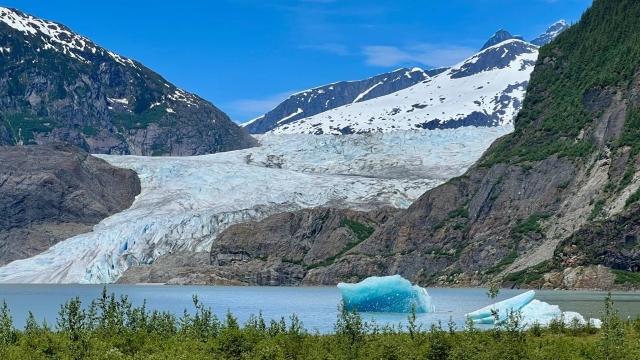
Requirements
To attend this course, participants should have prior experience in communications (i.e., interpretation, environmental education, outreach, and/or public affairs). Individuals must complete the Application Form illustrating their interest and experience in climate change communications. Experience or knowledge of climate science is not a prerequisite.
Expectations of Participants
- Complete ~4 hours of preliminary assignments outlined above in preparation for the face-to-face sessions.
- Be present and fully participate in all three days of face-to-face sessions.
- Create an Action Plan for developing an interpretive, educational or outreach product or program applying course content.
- Within one year, produce and share with the ETS community, a synopsis of an implemented interpretive/educational/outreach product incorporating NASA science content.
- Participate in post-course reporting and evaluations, including a one-hour follow-up webinar with fellow course participants.
Selection Process
The course planning team will carefully review and make selections based on information provided in your Application Form. The maximum class size is 24. Those not selected during the first round will be placed on a waitlist to backfill any cancellations.
How to Apply
Apply here!
Applications will be accepted until the end of the day on Wednesday, September 6th, 2023.
Cost
No Tuition. Travel expenses are the responsibility of participants and/or their institutions. A 20-room block of rooms is set aside at the Best Western (907.789.5005) for a discount of $119.95/night.
Questions?
For more information, please contact us at: This email address is being protected from spambots. You need JavaScript enabled to view it.
Download this announcement as a PDF.
Photo credit for cover image of Mount St. Elias & Icy Bay: NPS/ Bryan Petrtyl.

